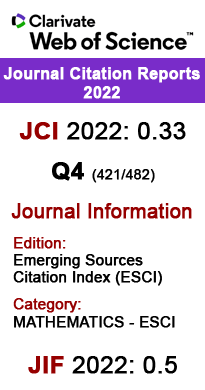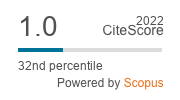Malaysian Journal of Mathematical Sciences, May 2019, Vol. 13, No. 2
Perceptions of Learning Mathematics among Lower Secondary Students in Malaysia: Study on Students' Engagement using Fuzzy Conjoint Analysis
Gopal, K., Salim, N. R., and Ayub, A. F. M.
Corresponding Email: kathiresan@upm.edu.my
Received date: 31 August 2018
Accepted date: 29 April 2019
Abstract:
As Malaysia strives to embrace the Data Science & Big Data revolution, the need to produce graduates with higher mathematics competence grows accordingly. However, the nation's vision may face a threat due to the declining interest to learn mathematics among the younger generations. Although initiatives like STEM was undertaken to face this issue, the success rate was relatively low. Ultimately, the key driver of mathematics learning is students' interest; which can be described using their perceptions of learning mathematics. Accordingly, this paper evaluated the perceptions of learning mathematics among lower secondary school students in Malaysia. A descriptive survey study was conducted on 562 randomly selected students across Peninsular Malaysia. The instrument consisted of 54 attributes encompassing 3 constructs of classroom engagement. Ratings on attributes were analysed using Fuzzy Conjoint Analysis to identify the significant attributes and their influence. The most significant attribute indicated that students tried multiple times if they were
unable to tackle a given problem. The least significant attribute revealed that students were always afraid of getting poor results in mathematics tests. Results attested that students had varying perceptions, however, their overall perceptions of learning mathematics were positive. Negative and neutral perceptions mainly existed for affective engagement, particularly for students' anxiety and frustration in learning mathematics. This provides important information for education stakeholders to improve the affective component of engagement. In a nutshell, this study served as an initial attempt to investigate students' perceptions of learning mathematics with respect to their classroom engagement.
Keywords: perceptions, mathematics learning, engagement, fuzzy con- joint analysis









